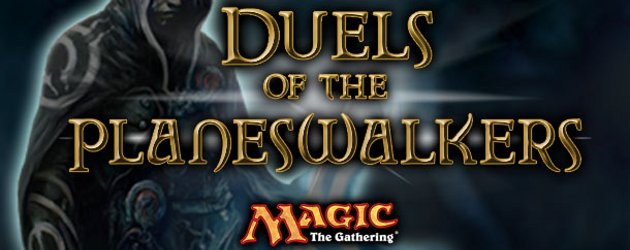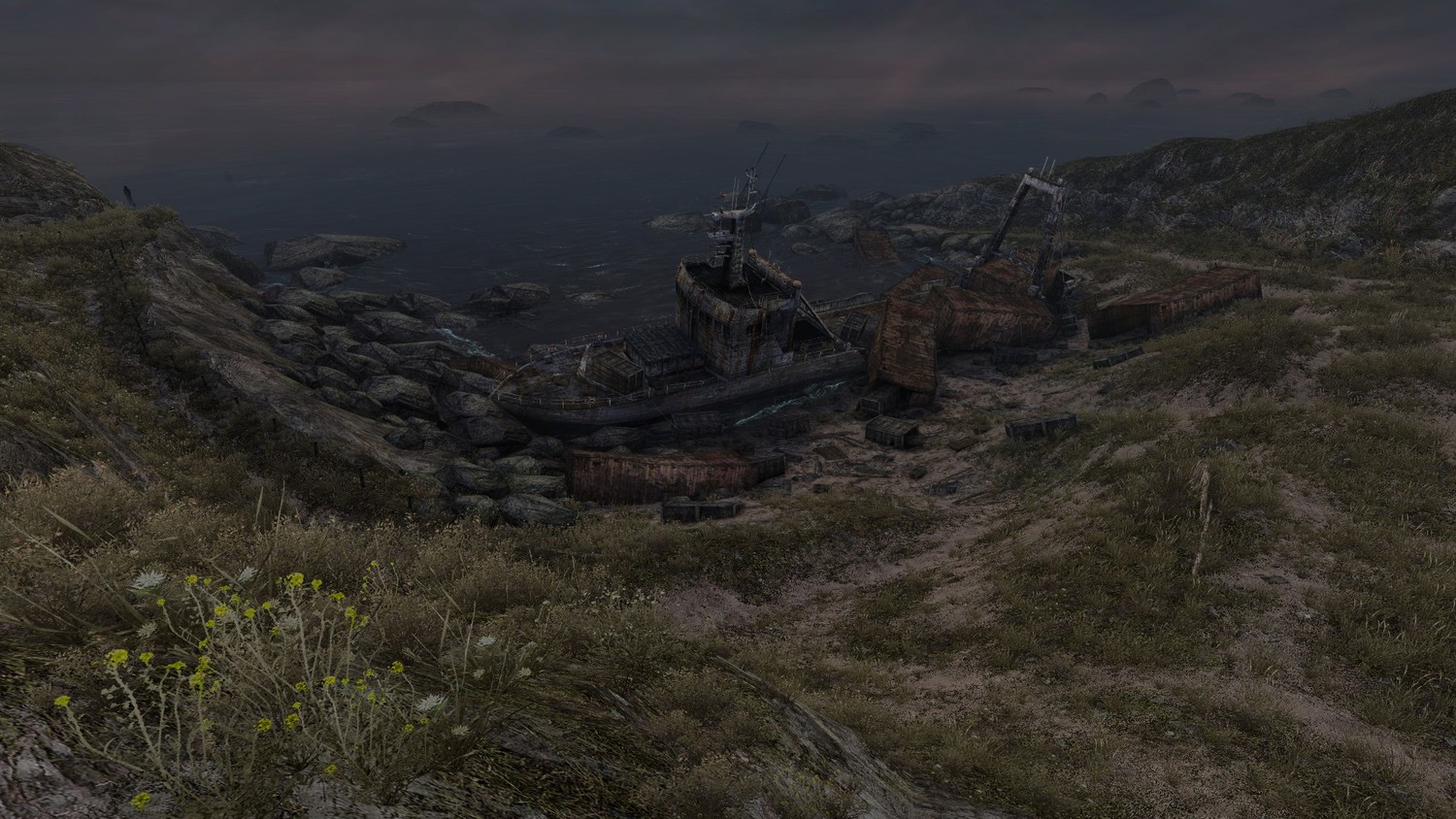
Review – Magic: The Gathering – Duels of the Planeswalkers
Posted by David S. Gallant on January 4th, 2011 | 3 Comments | Tags: Magic: The Gathering - Duels of the Planeswalkers
screenshots from the PC version
Warning: this review contains terms they may be unfamiliar to those who have no experience with the Magic: The Gathering collectible card game. I have done my best to make this review as accessible as possible, but if you need more information, please consult this Wikipedia article.
After our first session with “Magic: The Gathering: Attack of the Oversized Title”, my wife and I tore our home apart to find the Magic decks we used to play in college. Part of this was because the Playstation Network rendition of the collectible card game so strongly reminded us of our time playing with the actual cards in our youth. Part of it was because we needed to remind ourselves how much more fun the game of Magic becomes when one has complete control over the contents of one’s deck. If you aren’t familiar with the card game, this isn’t the place to find a review; it has been printed since 1993 and has several dozen expansions, so check with your local comic or tabletop gaming store if the physical game at all interests you. If you’re new to everything Magic, then Duels of the Planeswalkers isn’t a bad place to start. The game’s many tutorials and tips serve as excellent introductions to players new to the game. Don’t expect an “augmented” experience like The Eye of Judgement; this is as close as one can get to playing with the actual cards.
When you first begin Duels of the Planeswalkers, you are asked for your level of experience with Magic: The Gathering. One might assume this would affect the amount of hand-holding help the game provides, but instead it sets the AI difficulty. I was annoyed to have selected the “Very Experienced” option and still had the game hold my hand to explain basic card mechanics like “Instants” and “Flying”. The meat of the game is it’s single player “campaign” which pits you and your chosen deck against a single AI opponent at a time. You start with a choice of three pre-constructed decks, and throughout the campaign you are able to unlock five more. Also, each win in any game mode unlocks a new card to be added to the deck you used. These unlocked cards can be left in the deck or removed from play between games. Why is this significant? Well, this “sideboarding” of unlocked cards represents the entire breadth of deck customization in Duels of the Planeswalkers. A large part of Magic’s appeal comes from building one’s deck; the card game’s entire business model revolves around selling booster packs of random cards; one can buy pre-constructed decks, but one is encouraged to buy boosters and customized those decks and even build entirely new ones. This large facet of Magic is utterly absent from Duels, and it’s lack is a huge blow to fans of the game like myself. The included pre-constructed decks are very well-built, but they are nowhere near as creative, interesting, or downright dastardly as the combinations I’ve seen in real play.
While you can unlock new decks in the campaign, the option is also available to pay a small fee in the Playstation Store and have the deck immediately available. There are currently 22 pieces of DLC available for Magic currently, and it can be a tad confusing to figure out what each pack is for. Let me lay the options out for you:
- $0.99 to unlock a deck in the core game. If you don’t want to wait to unlock a deck, this is for you.
- $0.99 to turn all uncommon, rare, and mythic rare cards in a given deck into foil cards. Foil cards are identical to their regular versions, except they look shiny. If you want to throw down shiny cards in multiplayer, this is for you.
- $1.99 to add either new backgrounds, new play areas, or new player icons. The game comes with a small amount of each of these aesthetic items, so these packs allow you to unnecessarily change these visual aspects.
- $4.99 to acquire one of the three actual expansion packs, which each adds three new decks and new campaign battles.
The other single-player modes are custom match and co-operative campaign, the latter of which is I found quite refreshing. It allows two local players to compete against two AI opponents using Magic’s “Two-Headed Giant” rules. It’s an excellent way to incorporate local multiplayer while addressing the fact that players can see each other’s cards. Online play features competitive 2-, 3-, or 4-player free-for-all matches, or Two-Headed Giant matches, over Playstation Network. Voice chat and Playstation Eye are fully supported. While you can fight in ranked duels against random opponenets, there appears to be no method of accessing one’s rankings or statistics (though you can access those of your friends). If you’re looking to see where you rate among the top deckslingers… you’re not going to find that here. The game is great for playing with like-minded friends, but loses lustre when playing against (typically silent) randoms.
Earlier in this review I mentioned that Duels of the Planeswalkers might be a good way to introduce new players to Magic: The Gathering. The game’s Mentor modes seem to have this very notion in mind, allowing you to sign in as either a Mentor or a pupil and be paired up over PSN. However, this mode is nothing more than just another form of online multiplayer. There are no additional tools or controls for mentors to guide their pupils in learning Magic or how to effectively play Duels of the Planeswalkers other than one’s own voice. I spent some time as a Mentor, and after every match the game claimed to be rating my mentoring skills. Like multiplayer rankings, these statistics are never made visible, and they don’t appear to have much effect at all. I must have been the only Mentor available at the time of this review, because I could never find anyone to Mentor me. It’s a shame this mode is useless, because the concept of learning this game with the aid of a real person is really appealing. After all, that’s how Magic players used to learn the game.
When it comes down to it, the game is a very faithful adaptation of Magic: The Gathering. The cards still have their beautiful art and amusing flavour text. The game is smartly and briskly adjudicated; perhaps a bit too briskly, and the timers for each phase can count down in a blink on default settings. There is almost always a Stop Timer button, and some timers can be disabled in the options, so this is a minor issue. As someone who loves the game but has few like-minded individuals in the area, Duel of the Planeswalkers scratches an old itch. Its omissions are glaring, but it is still a worthwhile purchase for those with any interest in Magic: The Gathering.
For more info on our review policy click here. This review is for the PlayStation 3 version of the game.
General Info
- Developer: Stainless Games
- Publisher: Hasbro, Wizards of the Coast
- Release Date: November 2010
- Players: 1-2 (Local), 2-4 (Online)
- Ratings: Teen
Score:
What I Like:
- Faithful adaptation of the card game
- Local & online multiplayer
What I Dislike:
- NO.
- DECK.
- BUILDER.
- Also the Mentor mode is useless.




